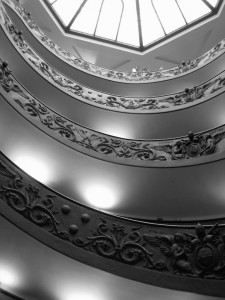Opting to tax provides a unique situation in the VAT world. It is the sole example of where a supplier can choose to add VAT to a supply….. or not.
VAT free supplies
The sale or letting of a property is, in most cases, exempt by default. However it is possible to apply the option to tax (OTT) to commercial property. This has the result of turning an exempt supply into a taxable supply at the standard rate. (It is not possible to OTT a residential property).
Why opt?
Why would a supplier then deliberately choose to add VAT on a supply?
The only purpose of OTT is to enable the optor to recover or avoid input tax incurred in relation to the relevant land or property. The OTT is a decision solely for the property owner or landlord and the purchaser or tenant is not able to affect the OTT unless specific clauses are included in the lease or purchase contracts. Care should be taken to ensure that existing contracts permit the OTT to be taken. Despite a lot of misleading commentary and confusion, it is worth bearing in mind that the recovery or avoidance of input tax is the sole reason to OTT.
Once made the OTT is usually irrevocable for a 20 year period (although there are circumstances where it may be revisited within six months of it being taken). There are specific rules for circumstances where the optor has previously made exempt supplies of the relevant land or property. In these cases H M Revenue & Customs’ (HMRC) permission must usually be obtained before the option can be made.
Two part process
The OTT is a two part process.
- The first part is a decision of the business to take the OTT and it is prudent to minute this in Board meeting minutes or similar. Once the decision to OTT is taken VAT may be added to a sale price or rent and a valid tax invoice must be raised.
- The second part is to formally notify HMRC (after obtaining permission if necessary). The form on which this is done is a VAT1614A. Here
There can be problems in cases where the OTT is taken, but not formally notified.
Disadvantages
The benefit of taking the OTT is the ability to reclaim input tax which would otherwise fall to be irrecoverable. However, one disadvantage is that opting the sale or rent of a property may reduce its marketability as it is likely that entities which are unable to recover VAT would be less inclined to purchase or lease an opted property.
Another is that the payment of VAT by the purchaser may necessitate obtaining additional funding. This may create problems, especially if a VAT charge was not anticipated. Even though, via opting, the VAT charge is usually recoverable, it still has to be funded up front.
Also, an OTT will increase the amount of SDLT payable when a property is sold. This is always an absolute cost.
Transfer Of a Going Concern (TOGC)
I always say that advice should be taken in all property transactions and also in cases of a Transfer of A business as a Going Concern (TOGC). This is doubly important where an opted building is being sold, because TOGC treatment only applies to a sale of property when specific tests are met.
Property transactions are high value and often complex. The cost of getting VAT wrong, or overlooking it can be very swingeing indeed. I have also seen deals being aborted over VAT issues. For these reasons, please seek VAT advice at an early stage of negotiations.
More on our land and property services here

